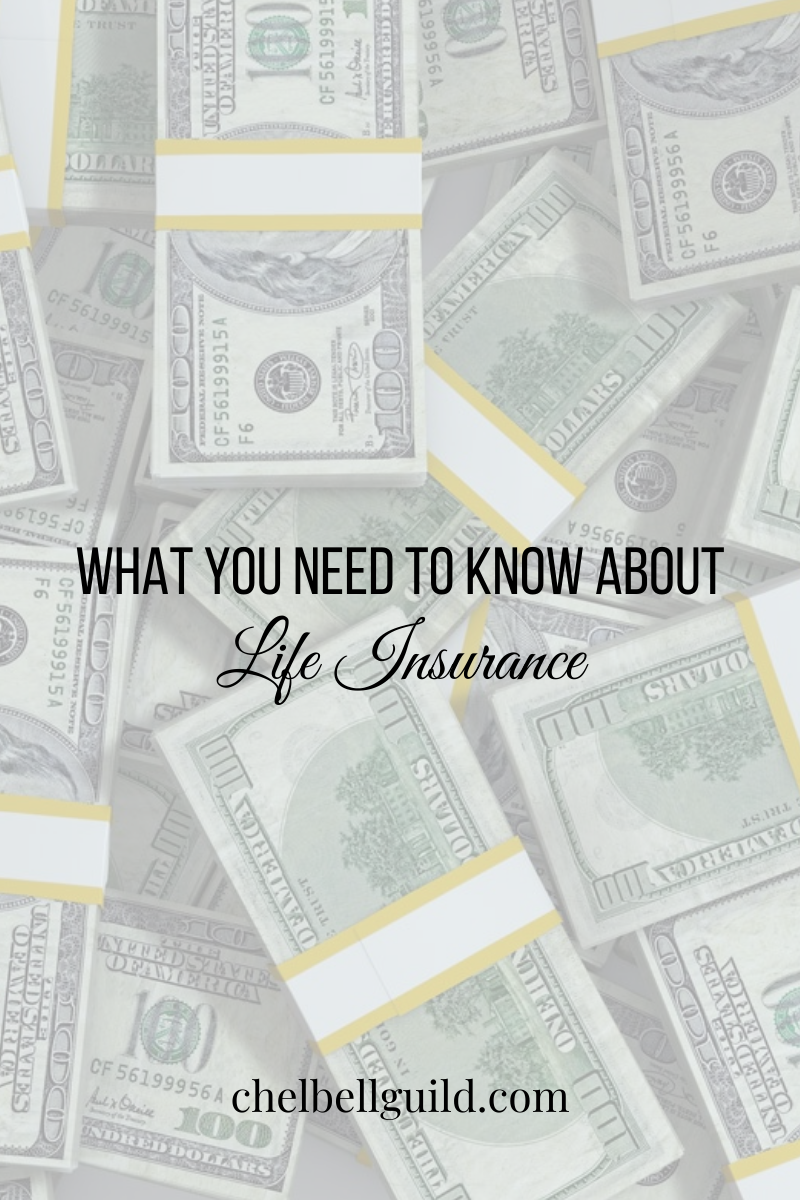What You Need to Know About Life Insurance

I don’t sell life insurance and nobody is paying me to share this. As a death doula, I understand the peace-of-mind life insurance can bring to loved ones left to wrap up your affairs after you die, and I want to simplify the buying process for you. The sooner you buy life insurance, the better, and yet, many put it off because it can be so confusing.
Important things to consider:
- The younger you are when you buy life insurance, the less expensive it will be. Monthly premiums (or payments) are calculated based on age and health, so you can see why you would be deemed as less risky to the company and therefore get cheaper monthly premiums the younger you are when you buy the policy.
- You can have multiple life insurance policies. This means that while your workplace might provide you with life insurance at no cost to you, you might want to buy your own personal policy in the event that you aren’t working for the same employer when you die. After all, you lose your coverage if you don’t work for that company anymore. But in the event that you die while working there, your beneficiary will receive funds from both policies.
- Buy a policy based on your own needs and circumstances. Financial “experts” will try to give you magic formulas for the right amount or type of insurance you should buy, but everyone’s preferences and needs are different.
- Only commit to a policy if you can afford to pay the monthly premiums on. That might mean buying a lesser amount or a different type. Work with an agent and be clear about what you can afford. If you ever feel like the agent is trying to upsell you, get out of there!
- Ask questions. No question is stupid and even if you already asked and forgot the answer, your agent should be patient with you and make sure there is absolutely no confusion about the policy you are buying.
- Review your life insurance policy with your agent every couple of years. They will likely follow up with you on this whether you remember or not, but a major change in income, a divorce, or making an addition to your family, for example, might mean changes to your policy are in order.

How much life insurance do I need?
Consider what your beneficiary might need these funds for when you die and also, how much you can afford to pay in monthly premiums. For example, I might want my family to get a $1 million when I die, but I might not be able to make the monthly payments on that. Going smaller is better than not having any insurance at all. Here are some things family and friends might have to pay for when you die:
- Their own travel expenses and lost wages for time spent wrapping up your affairs
- Your actual body disposition and memorial/funeral
- Any debts you left behind
- Possible estate taxes or attorney’s fees
- Living expenses for anyone who is financially dependent on you (a parent or someone with special needs)
- Any financial benefit you might have provided had you lived longer. For example, you might have contributed financially to your child’s education or wedding, to your spouse’s retirement, etc. This aspect is unique to you, and even if you do leave behind children or a spouse, you may determine that they have other ways to afford life expenses rather than you struggling to pay your monthly premiums each month you are alive. There is no right or wrong answer here, but you need to decide whether to buy more insurance based on these things.
- Donations to organizations, if you so choose
- Pet care

Which type of life insurance should I choose?
The main thing you need to know is that there are policies that cover you for a short period of time and expire (called term insurance) and there are policies that are permanent and can sometimes build cash value (generally called whole or universal insurance).
Term- Why on Earth would you want to make payments on a policy that might expire before you actually die?! The answer is, this might be the only life insurance you can actually afford because many people wait to even think about life insurance until kids come along and by then, monthly payments on a permanent policy might be too expensive. Also, term insurance will at least cover your family in the event that you die when they need your income the most. Term insurance is a great option for people between the ages of, say, 30 and 60 who have kids or parents to support during that time and are concerned that if they die during those years, the people they support would be screwed. But after the policy expires, they have no coverage at all and will have to reassess. The good news is that part of that term policy can be converted to a permanent policy during those term years. (Stay with me here!) You might decide to pay a little bit more every month just so that a portion of that policy will stay with you after the rest expires. Again, having some coverage is better than none!
We’d like to think that by the time we are in our 60’s and our term insurance expires, we’ll be able to pay higher monthly premiums on the next policy because our cars and homes will be paid off by then and our retirements will be fully funded, right? That’s often not the case anymore, and even if it were, there will likely be unexpected medical bills and other financial needs that pop up and require our income. Don’t stress; just don’t assume you’ll be in a better financial place in the future and make your current insurance decisions based on that.
Whole- Whole life insurance covers you for as long as you live, as long as you continue to pay your monthly premiums (which will generally stay the same forever). These monthly payments will seem more expensive than the monthly payments on a term policy, but they will actually be less expensive than if you tried to take out a policy for the exact same amount later in life. What I mean is that if you are 40 years old and comparing quotes between whole and term life insurance policies, whole will be more expensive. But if you wait until you’re 60, the monthly payments on both of those will be way more and you might be kicking yourself for not buying that whole life policy back when you were 40 and thought it cost too much money. Make sense?
Universal- Universal life insurance is a flexible policy that lets you vary your premium payments and builds cash value that you can borrow against while you are living. The premiums you pay every month (minus expenses the insurance company charges to run the account) go into an account that earns interest. Your account value can become higher or lower, but if it keeps dropping, eventually you could lose coverage. To prevent that you may need to increase your premium payments or lower your death benefit. I’m going to say right now that I don’t recommend this type of policy because if you aren’t paying attention, you could lose money. You could assume your beneficiaries are safe when they aren’t. I am a set-it-and-forget-it kind of person, so I’d rather things stay the same, but maybe you like the idea of having a safety net you can borrow from if needed one day, so explore this option with an agent before ruling it out.

Overwhelmed?
Just imagine this: a close loved one dies and you receive a death benefit of $5,000. How would that ease your burden, especially if you were the main person responsible for wrapping up their affairs? I bet that even this small amount would make a difference to you. If nothing else, it’s money you don’t have to come up with out of your own pocket while you are already stressed and grieving. This is why I encourage you to call an agent and at least start with a small policy.
If you have questions about end-of-life planning, contact me at chelbellguild@gmail.com.






